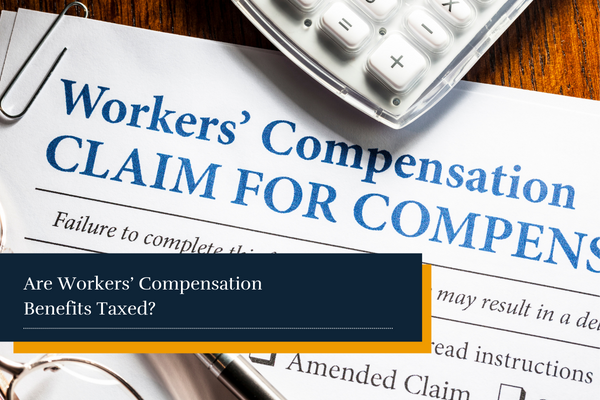
If you were injured on the job in Pennsylvania, you could be entitled to workers’ compensation benefits for medical treatment and wage replacement. Worker’s comp is a no-fault system, meaning eligible employees can claim benefits no matter who was at fault for the injury or illness.
Every dollar counts as you recover from an injury, especially if you cannot work while you heal. It’s natural to wonder, “Is workers’ comp taxable in Pennsylvania?” Here’s what you need to know.
What Benefits Can I Receive Through Workers’ Compensation?
Workers’ comp in Pennsylvania provides the following benefits to qualifying employees:
- Medical expenses – Reasonable and necessary medical costs related to a work injury or illness
- Wage-loss benefits – Benefits that replace a portion of a worker’s lost income for a total or partial disability
- Specific loss benefits – Compensation for the permanent loss of use of particular body parts, such as hands, feet, fingers, or eyes, and other types of significant disfigurement
- Death benefits – Compensation that covers funeral expenses and a portion of lost income for a worker’s dependents if the worker dies as a result of an occupational injury or illness
Do I Have to Pay Taxes on My Workers’ Compensation Benefits?
Typically, you do not have to pay taxes on workers’ compensation benefit payments. Pennsylvania does not consider payments arising under workers’ compensation taxable, so they are not subject to the same tax laws as regular income. This is also true under the federal tax code, which states that the money from a workers’ compensation claim does not count as gross taxable income.
The rationale for these rules is straightforward: workers’ comp benefits and settlements are not income in the traditional sense. They don’t represent earnings or add to your wealth. Instead, they serve as compensation for a loss. This aligns with the principle that only profits are taxable, and expenses or losses can offset such tax obligations.
Are There Exceptions to the Rule?
Yes. The Pennsylvania Department of Revenue says workers’ comp payments can be taxable when employees turn over the payments to their employer and receive their regular salary in return. This is sometimes called a salary continuation plan. Under this arrangement, the employee does not report the workers’ comp payments for tax purposes but does report the total amount of their regular salary.
Furthermore, workers’ comp benefits can be subject to taxation if the beneficiary also collects Social Security Disability Insurance (SSDI) or Supplemental Security Income (SSI) benefits. If someone receives workers’ comp and SSDI or SSI benefits simultaneously, the total amount of all benefits cannot exceed 80 percent of the average income the person earned before they developed a disability. This is known as the workers’ compensation offset. The Social Security Administration (SSA) will reduce a person’s SSDI or SSI benefits to ensure that the total doesn’t surpass this 80-percent threshold. This could make a portion of your workers’ compensation benefits effectively taxable.
The specifics of these exceptions can be quite complex, so you should always consult a trusted workers’ compensation attorney to understand the tax implications of your situation.
Contact a Pennsylvania Workers’ Compensation Attorney Now
You don’t have to navigate Pennsylvania’s workers’ compensation system alone. Take the first step toward securing your rights by discussing your case with a workers’ compensation lawyer from Calhoon & Kaminsky P.C. Call or contact us today for a free consultation.
- About the Author
- Latest Posts



